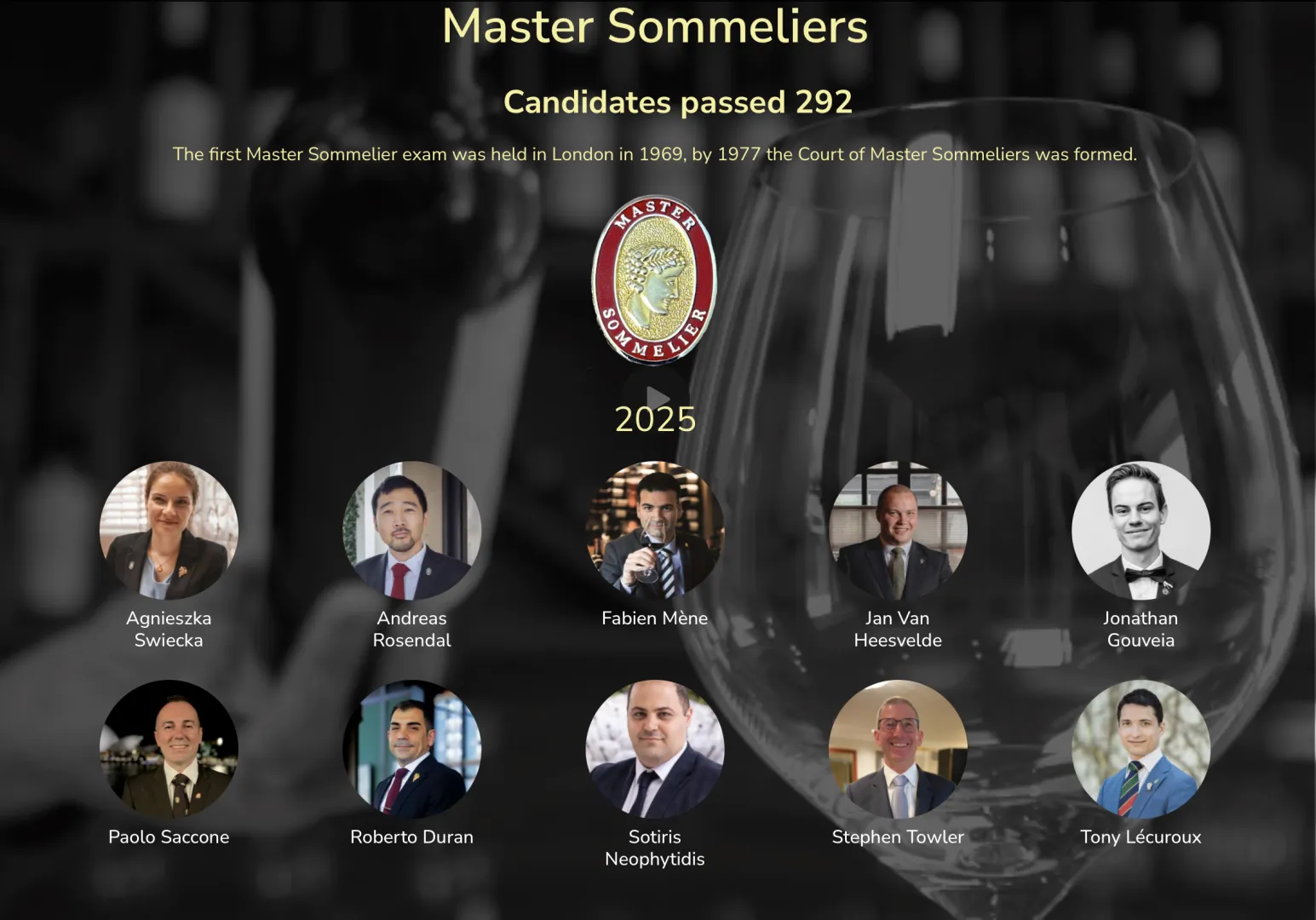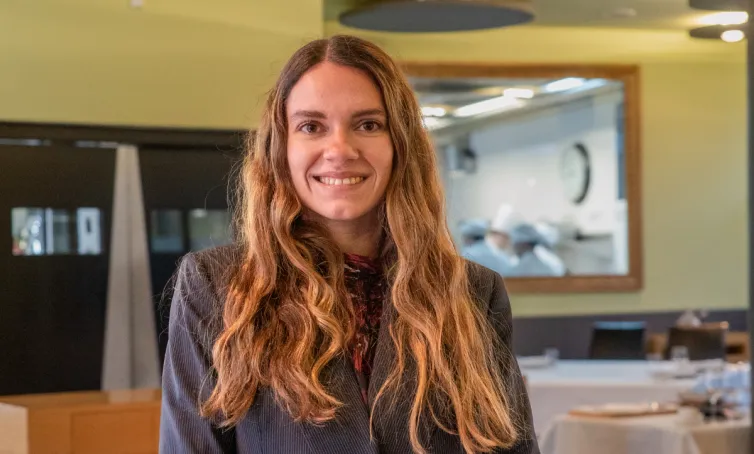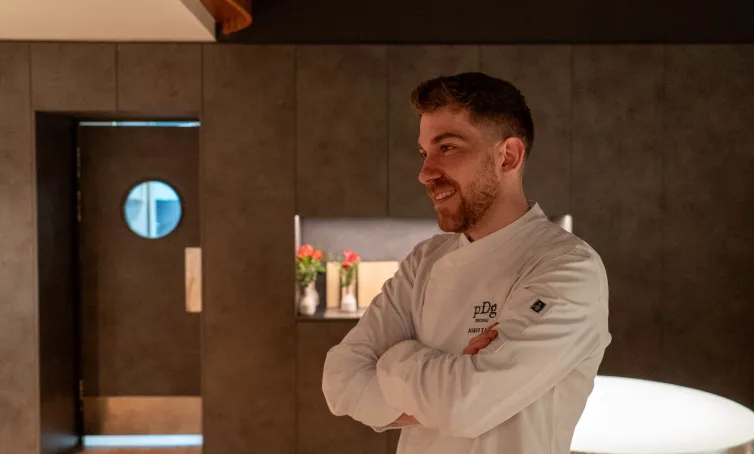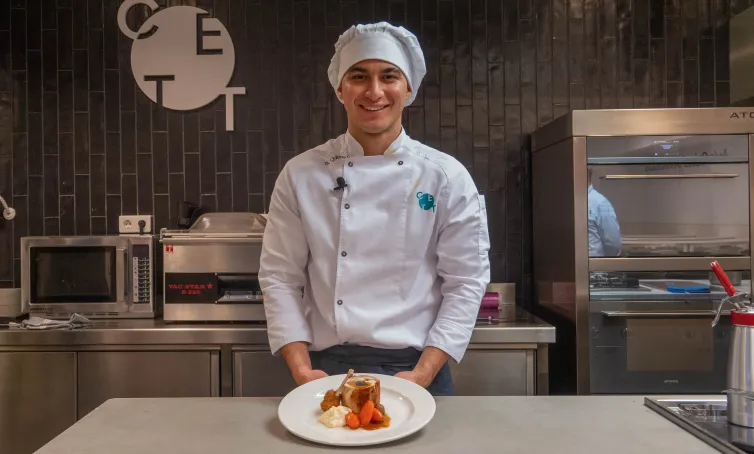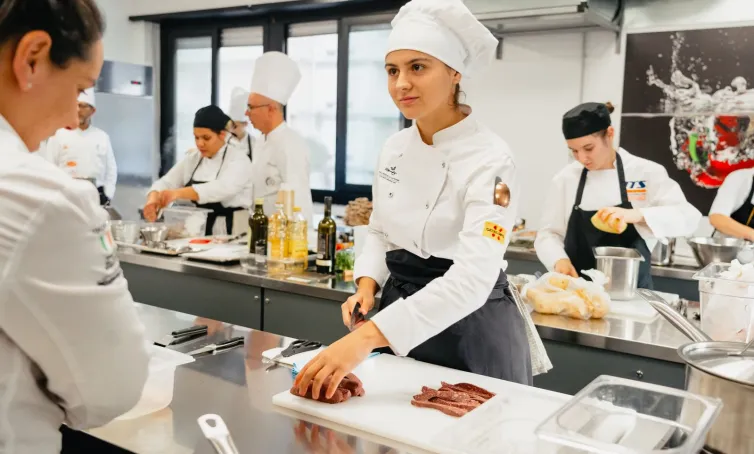Roberto Duran, CETT Alumni and Master Sommelier: “Sommelierie can’t remain stuck in the classical; it must adapt to what’s happening in the market and the world”
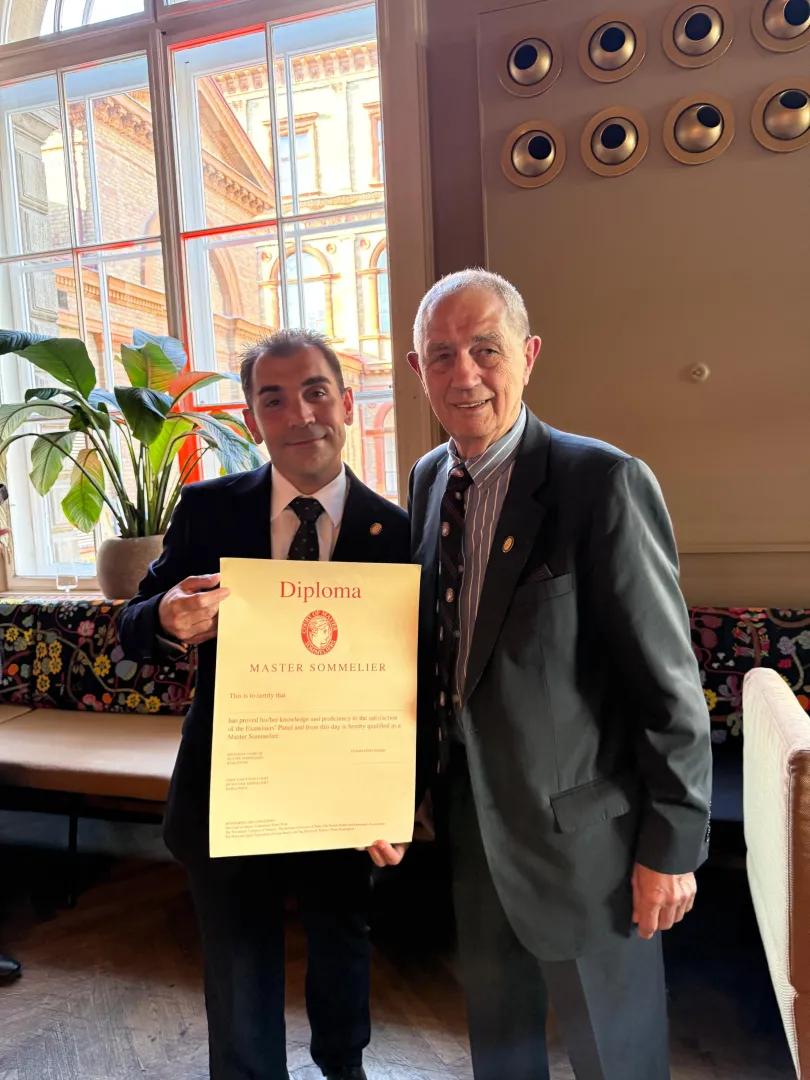
Roberto Duran is one of only 291 wine professionals worldwide to hold the prestigious Master Sommelier title. We spoke with this CETT alumnus to learn about his journey and his vision for the industry.
Earning the Master Sommelier title means entering the elite of the wine world — a distinction achieved by only 291 individuals since it was first awarded in 1969. This certification, granted by the Court of Master Sommeliers (CMS), recognizes the highest level of expertise in wine knowledge and service. It focuses on both practical and theoretical skills in service, pairing, and beverage management in hospitality, covering cultural and sales aspects in fine dining environments.
To achieve it, candidates must pass three demanding tests — a tasting, a theoretical exam, and a practical service and cellar management assessment — all within a three-year period and with at least 75% accuracy in each. Failing to meet this standard means starting over from scratch.
Roberto Duran, a CETT alumni from Higher University Diploma in Sommelier (2009-2011), spent the last seven years pursuing this goal. This summer, he became the first Spaniard to add the MS initials to his name.
- Firstly, congratulations on this major achievement! What has it meant to you to earn the Master Sommelier title?
Achieving the Master Sommelier title has been one of the most transformative experiences of my professional and personal life. Beyond the recognition, it represents years of intense study, rigorous practice, and a deep commitment to excellence.
It’s a title that validates not only technical knowledge — about wine, spirits, sake, and regulations — but also the ability to stay calm under pressure and deliver hospitality and expertise at the highest level.
- It took years of dedication. What was the preparation process like, and what challenges did you face?
The preparation was intense, to be honest. It's not just about memorizing the wines of the world — it’s about understanding regions, styles, producers, vintages… and staying up to date, because things are constantly evolving. It requires a lot of sacrifices: personal time, mental pressure, frustration when things don’t go well… But it also helped me become more disciplined, handle pressure better, and develop a continuous improvement mindset. It was tough, but totally worthwhile.
- The Master Sommelier title is one of the wine industry’s toughest achievements. What role did your background and education play in reaching this point?
My background and education were crucial. I started in hospitality out of curiosity, never imagining I’d become so deeply involved in the wine world. Early on in my front-of-house roles, I realized wine wasn’t just a beverage — it was an essential part of the dining experience. That sparked a desire to learn more, and over time, I started to train more seriously.
I’ve been fortunate to work in restaurants where wine took center stage. This allowed me to learn from great professionals and develop an eye for detail and service. Later came the more technical training: courses, certifications, tastings, travel… and, of course, many hours of study.
- In an increasingly professionalized sector, how do you think sommelier training should evolve to prepare future professionals?
I believe sommelier training must evolve in several directions if we really want to equip the next generation. A strong technical foundation is essential — viticulture, enology, regions, tasting, service — but we also need to broaden the scope. Nowadays, a sommelier needs to know not just about wine, but also about sustainability, customer psychology, effective communication, and even business management.
Plus, the wine world is changing fast: new emerging regions, unconventional styles, natural wines, and climate change all influence production. These factors must be incorporated into current training programs. Sommelier cannot remain stuck in the classical — it needs to adapt to what’s happening in the market and the world.
- From your own experience, what essential skills are needed for a sommelier career?
A career in sommelier requires a combination of key skills. Of course, technical wine knowledge is the foundation, but that alone isn’t enough. You also need strong human and service skills — especially communication. A good sommelier should be able to read guests, adapt their message, and communicate with clarity and passion, without relying on unnecessary jargon. Empathy, patience, and the ability to create a welcoming experience without being overbearing are also essential.
- After an extensive international career, how do you view the wine sector in Catalonia?
I think Catalonia’s wine sector is one of the most dynamic and diverse in all of Spain, with a strong present and a promising future. It has a deep-rooted tradition, but also an incredible ability to reinvent itself and adapt to the times. What I admire most is the combination of respect for winemaking heritage and an innovative spirit — with projects focused on native varieties, organic farming, and new ways of understanding wine.
There are many noteworthy DOs. The Penedès, of course, remains a benchmark — both for its history and for how it has evolved, especially with the rise of quality sparkling wines like Clàssic Penedès and the revolution sparked by Corpinnat. CAVA is also gaining traction internationally. I’d also highlight the momentum of DO Montsant and DOQ Priorat — wines with a strong identity, where Garnacha and Cariñena really express the character of the terroir.
- And to end on a celebratory note — what advice would you give to someone who wants to become a sommelier?
My advice would be to start from the basics — listen, observe, ask questions, and above all, stay curious. And never lose your passion, because that’s what connects you to people and makes you stand out.
I’d say: if you truly feel passionate about wine and service, go for it — but go in with your eyes open. Being a sommelier isn’t just about knowing a lot about wine; it’s about being willing to work hard, study constantly, and spend long hours on the floor under pressure. But it’s also a hugely rewarding profession if you enjoy learning, sharing, and creating memorable experiences for others.
Check out CETT's academic offerings in wine
